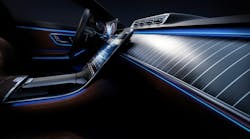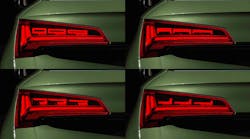The WEEE Regulations initially came into effect in 2007 to meet the requirements of the EU Directive of the same name, obliging manufacturers and producers to take responsibility for the safe disposal or recycling of their products when they reach end-of-life. Most manufacturers do so by registering with one of the many Environment Agency approved compliance schemes which manage the process on their behalf.
The lighting industry established its own scheme, Recolight, to manage the recycling of all in-scope Gas Discharge Lamps which includes fluorescent tubes, metal halide and sodium SON and SOX lamps. Founded by GE, Osram, Philips Lighting and Havells Sylvania, Recolight now has over 60 members representing the overwhelming majority of all Gas Discharge Lamps put on the market, and a network of over 900 collection points for the collection of business waste. Through Recolight, the lighting industry has funded the recycling of more items of WEEE than any other industry, demonstrating its commitment to meeting the requirements of the Regulations and keeping this potentially hazardous waste stream out of landfill.
The WEEE Directive is currently undergoing a review and LEDs will be specifically named in the scope of the recast Directive which is due to be finalised in 2010/11. In the meantime the Environment Agency has already classed LEDs as in-scope for the WEEE Regulations so companies importing or producing LED and OLED lamps need to comply with the WEEE Regulations now.
Under the WEEE Regulations a producer, importer or anyone who puts new lamps on the UK market for the first time must take responsibility for their products when they reach end-of-life. This includes companies importing from other EU member states, or those who simply re-brand a product.
Compliance schemes like Recolight will ensure their members are compliant with the law and manage the collection and recycling process, which in the lighting industry can be many years after the original sale of the product.
For many UK companies who only import a small quantity of LEDs, complying with the WEEE Regulations may seem like an unnecessary burden. However, good compliance schemes can work with you to ensure this isn’t the case by making compliance as simple as possible.
Complying with the Regulations covers the cost of future recycling and setting up the necessary infrastructure to make recycling as simple as possible. In the lighting industry in particular, where the life of a lamp may be over five years or more and its ownership may change several times during that period, this means that the end-user or contractor will not be left paying to recycle, which in turn should encourage greater recycling rates.
It is essential that all in-scope companies, including LED and OLED importers register with a compliance scheme to avoid the penalties imposed on “free-riders” by the Environment Agency and other enforcement bodies. By ensuring all in-scope companies comply with the WEEE Regulations the lighting industry can continue to lead the way in recycling, and invest in the essential collection infrastructure and awareness raising to keep this hazardous waste out of landfill now and in the future.




